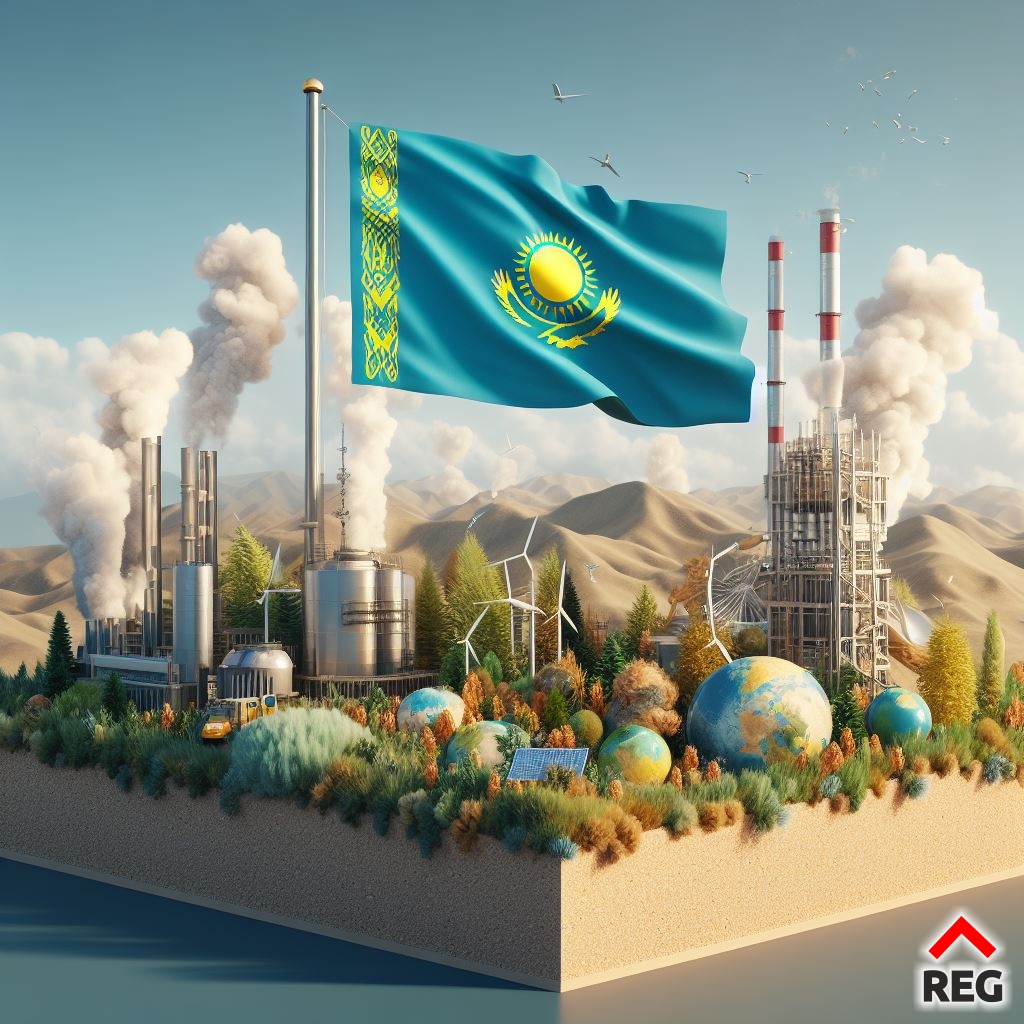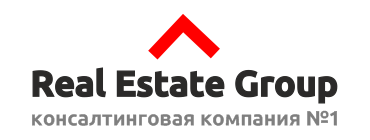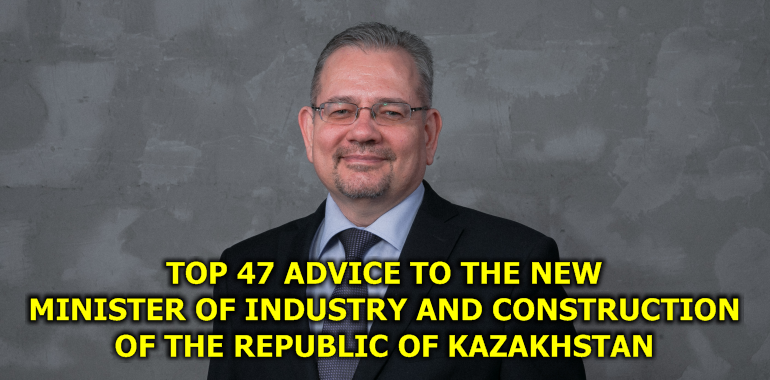Introduction:
Dear Mr. Kanat Bisimbaevich Sharlapaev Real Estate Group, welcome your appointment to the post of Minister of Industry and Construction of the Republic of Kazakhstan. You will undoubtedly have a responsible task - the development of the industrial and construction sectors, which are key factors for the economic growth and prosperity of Kazakhstan. In this article, we present to you the top 47 tips, based on our financial knowledge and experience, that will help you succeed in this important role.
I. Strategy development and planning:
1. Analyze the current state of the industrial and construction sectors, identify strengths and weaknesses, as well as potential for growth and modernization.
2. Develop a long-term development strategy, taking into account global trends, technological innovations and market needs.
3. Set specific goals and action plans to achieve those goals, ensuring they are measurable and realistic.

4. Prioritize industries and projects with the greatest potential for economic growth and job creation.
5. Establish mechanisms to monitor and evaluate the effectiveness of strategy implementation to be able to make adjustments if necessary.
II. Attracting investments and creating a favorable investment climate:
6. Create attractive conditions for investors, including simplification of registration procedures, reduction of bureaucratic burden and provision of tax benefits.
7. Actively attract direct and foreign investment by holding presentations and forums to attract the attention of potential investors.
8. Develop government support programs for small and medium-sized enterprises, including access to finance, advice and training.
9. Strengthen cooperation with international organizations and banks to obtain financial and technical support for the implementation of projects.
10. Create a public-private partnership system to involve the private sector in infrastructure development and industrial projects.
III. Promoting innovation and development of new technologies:
11. Support and stimulate research and development in industry and construction by collaborating with universities and research institutes.
12. Create innovation centers and incubators to support young entrepreneurs and start-ups.
13. Actively implement new technologies such as artificial intelligence, blockchain and the Internet of things to improve the efficiency and competitiveness of industrial enterprises.
14. Collaborate with international partners and implement best practices in the field of industrial automation and production management.
15. Support innovative start-ups and entrepreneurial activity by providing access to funding, incubation programs and mentoring.
16. Develop digital infrastructure to provide access to high-speed Internet and digital technologies to all regions of the country.
17. Promote the development of an ecosystem of innovation, including the creation of networks of enterprises, universities, investors and government bodies.
IV. Export development and promotion of national goods:
18. Identify key export products and markets with high potential, and develop strategies and programs to promote them.
19. Conduct marketing research and analysis of the competitive environment to determine the strengths of national products and develop marketing strategies.
20. Support exporters by providing information on international markets, organizing exhibitions and missions to other countries, and providing financial support for participation in international fairs and exhibitions.
21. Develop a network of sales offices and dealer networks abroad to promote national goods and establish strong partnerships with foreign companies.
V. Improving infrastructure and ensuring housing affordability:
22. Develop an infrastructure development plan, including transport, energy and utilities infrastructure, taking into account regional needs and environmental aspects.
23. Attract investment in infrastructure development, including attracting private capital through partnerships and international financial institutions.
24. Ensure affordable housing for the population by developing programs to support young families, constructing affordable housing and developing rental housing.
25. Promote the development of sustainable housing by introducing energy efficient technologies and the use of renewable energy sources.
VI. Development of human capital and education:
26. Strengthen cooperation with universities and educational institutions to train personnel meeting the requirements of industry and construction.
27. Establish training and development programs for personnel in industry and construction to ensure the availability of highly qualified specialists.
28. Support industrial and construction research by providing grants and scholarships to students and researchers.
29. Collaborate with employers and industry associations to develop educational programs that meet the current and future needs of the industrial and construction sectors.
VII. Development of regional cooperation and industrial clusters:
30. Create industrial clusters that bring together enterprises and organizations in certain industrial and construction sectors to stimulate cooperation, exchange of knowledge and experience, and increase competitiveness in the international market.
31. Strengthen cooperation with regions and facilitate the transfer of technology and knowledge between different regions of the country.
32. Develop regional infrastructure development programs to attract investment and create favorable conditions for the development of industrial zones and industrial parks.
33. Promote the development of interregional exports and trade by encouraging cooperation between enterprises in different regions.
34. Support the development of small and medium-sized enterprises in the regions by providing financial support, advice and training.
VIII. Ensuring energy efficiency and environmental sustainability:
35. Support the adoption of energy-efficient technologies in industry and construction by encouraging subsidies and tax breaks for companies investing in energy-saving projects.
36. Promote the transition to renewable energy sources, including the development of solar and wind energy, as well as geothermal and hydropower resources.
37. Promote the adoption of environmentally friendly technologies and processes in industry and construction to reduce negative environmental impacts.
38. Conduct training programs for companies and workers on environmental responsibility and compliance with environmental safety standards.
IX. Strengthening international cooperation:
39. Develop partnerships with other countries and international organizations in the field of industry and construction, exchange experience and advanced technologies.
40. Actively participate in international exhibitions, conferences and forums to promote national industrial and construction projects and attract foreign investment.
41. Participate in international trade agreements and integration processes to expand export opportunities and provide access to new markets.
42. Collaborate with international financial institutions and banks to attract financing and technical support for projects.
X. Ensuring transparency and efficiency in management:
43. Develop a system for monitoring and evaluating performance in industry and construction to ensure efficient use of resources and achievement of set goals.
44. Strengthen anti-corruption measures and transparency in government procurement and licensing procedures in industry and construction.
45. Develop electronic systems and online platforms to simplify procedures and interaction with businesses and citizens.
46. Establish mechanisms to address complaints and concerns raised by industry stakeholders.
47. Continuously review and update ministry management policies to ensure they are relevant and effective in a rapidly changing economic landscape.
Conclusion:
The role of the Minister of Industry and Construction is critical in stimulating economic growth and ensuring sustainable development in the Republic of Kazakhstan. By following these 47 top tips, Minister Sharlapaev will be able to lead the Ministry to achieve its goals while promoting innovation, inclusion and competitiveness in the industry and construction sector.
Real Estate Group wishes the new minister success in all his endeavors.






